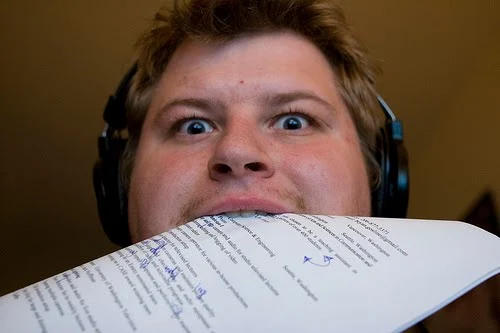
FreelanceSwitch.com recently posed the question, “do you use a resume as a freelancer?” I answered yes, and I wanted to expand on my comment here, since I was shocked to be in the minority. Yes, your portfolio says more about you than a resume ever could, and yes, many clients never ask for a resume, because they'd rather see your portfolio.
Here’s why, in my opinion, you should have one anyway.
- Keep track of accomplishments.As freelancers, we juggle lots of different projects at once. Some of us forget to update our portfolios, and some of those projects never make it into the portfolio. That’s where a resume can come in handy. Say you’re talking to a prospective client on the phone, and she asks if you’ve ever written a grant proposal or designed a bumper sticker. You’d probably remember if you had, but your answer might be kind of vague (“yeah, I did a grant for some nonprofits a few years ago – gosh, I wish I could remember those names!”) With a resume listing all your major accomplishments, you’ll have dates, names, and other key points right in front of you. Now, of course, you aren’t going to list every single project you’ve ever done. I have several different versions of my resume for blogging, copywriting, and journalism. I also have a version that highlights my nonprofit experience. Part-time freelancers should also consider having multiple versions of their resume depending on the situation.
- Respond quickly when clients request it.There’s a first for everything, and I suspect that, eventually, you’ll run into a client who wants to see your resume. Based on my anecdotal experience, it’s likelier to happen when you’re dealing with a creative staffing firm or a company that is more used to hiring full-timers than freelancers. But as the economy rebounds and companies hire contractors to fill some of the responsibilities left by laid-off employees, it’s bound to happen at some point. And when it does, you don’t want to hastily throw something together or make them wait for a week while you get your butt in gear. You want to wow them by responding within a few hours with a polished and current version of your resume.
- Prepare for a possible re-entry into the workforce.Some people start freelancing after a lay-off. Other people have that entrepreneurial spark and want to freelance forever. I happen to fall into the latter camp, but I wouldn’t rule out a return to the workforce if my circumstances changed and the right opportunity came along (as in, a fat paycheck, flexible hours, and a company I loved). If you ever need to apply for full-time jobs, you’ll need a resume and you’ll need to show that you haven’t spent the last few years sitting in your PJs watching daytime TV. When I left my job and suffered momentary doubts, one of my mentors reminded me that as long as I documented all my projects during the time I was freelancing, I’d be fine.
Here are some resources to help you get started (or polish your current resume):
- How to Create a Forward-Looking Freelance Resume
- Functional Resume Format for Freelancers
- How to Write a Freelance Writer Resume
- Creating a Writer's Resume
- Creating a Writing Resume - Examples and Tips
Flickr photo courtesy of Brymo